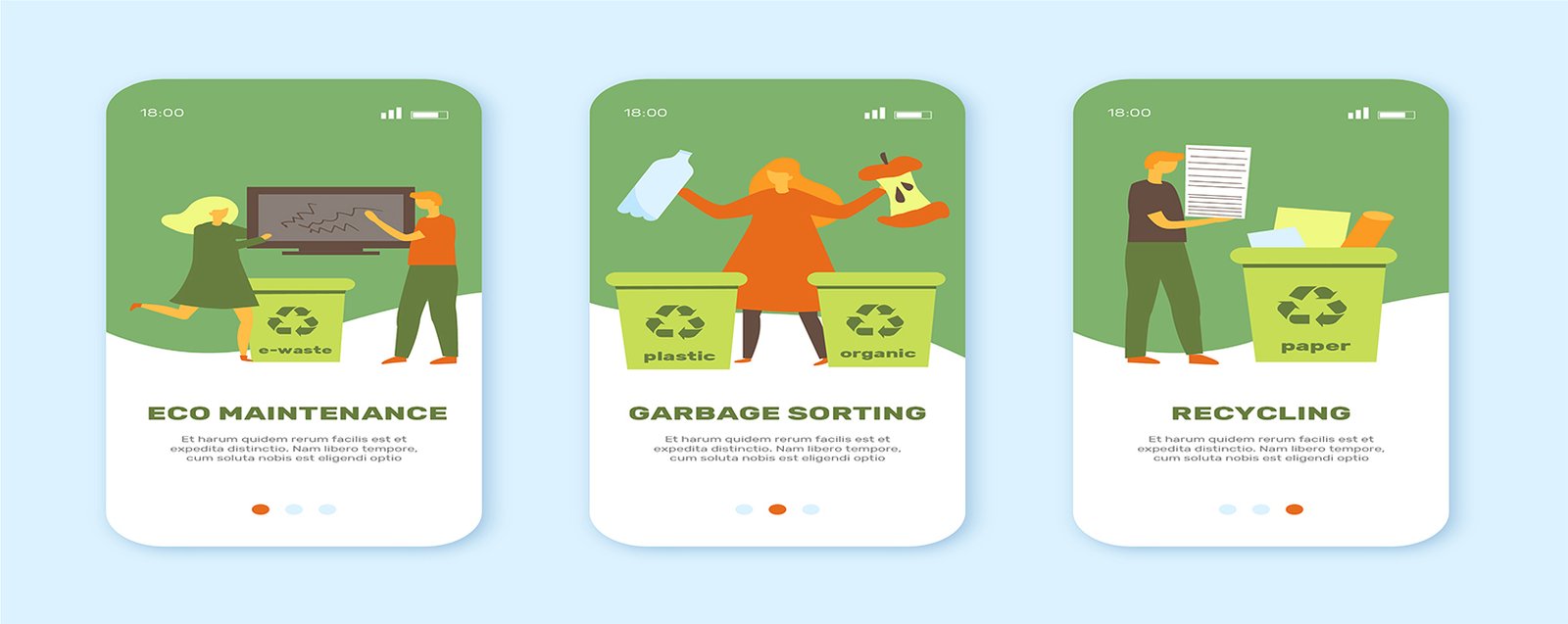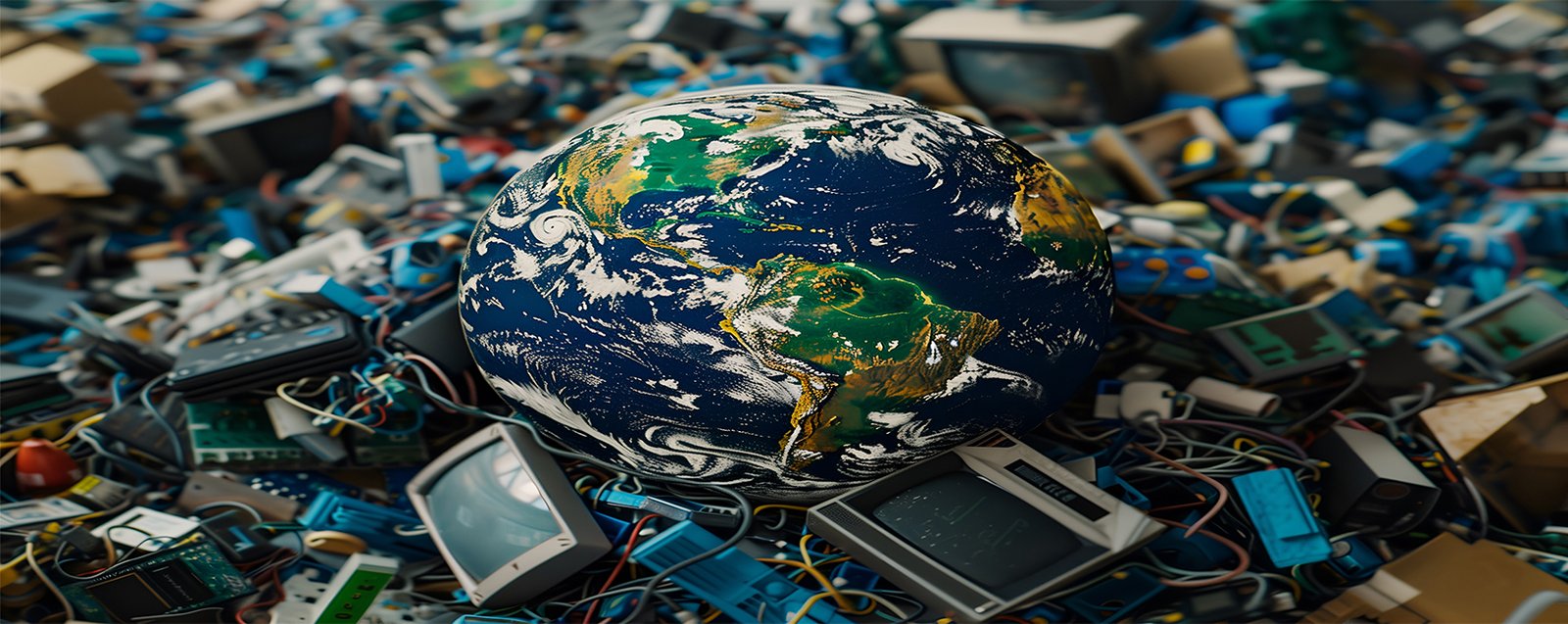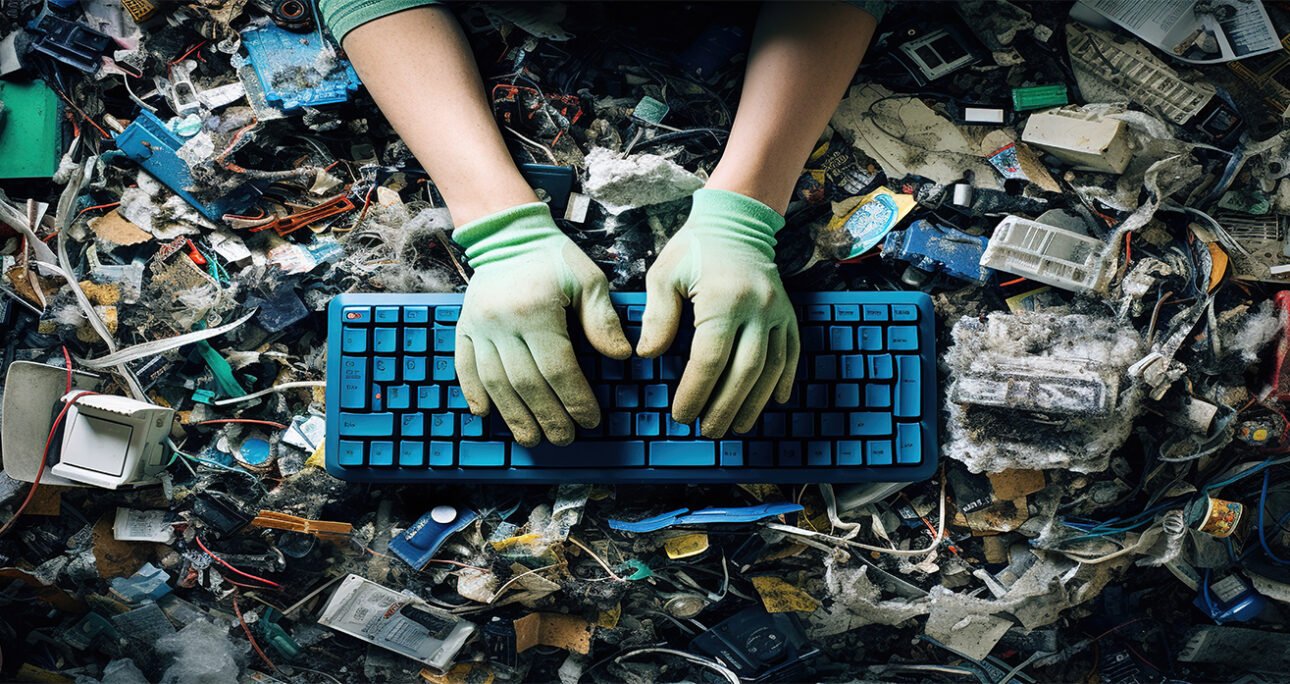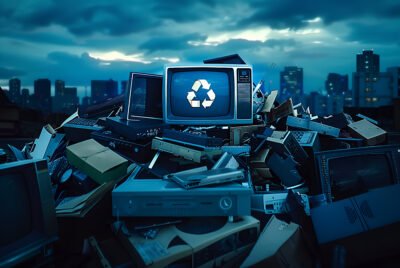The Growing E-Waste Crisis In today’s fast-paced digital age, technology is advancing at an unprecedented rate. From smartphones and laptops to household appliances and entertainment systems, electronic devices have become integral to our daily lives. However, this technological boom has also given rise to a significant environmental challenge: electronic waste, or e-waste.
The global e-waste crisis is growing exponentially, and without responsible recycling practices, the environmental and health impacts could be catastrophic. This blog will explore the extent of the e-waste problem and highlight why sustainable e-waste management is critical for businesses, governments, and individuals alike.
What Is E-Waste?
E-waste, short for Waste Electrical and Electronic Equipment (WEEE), refers to discarded electronic devices and equipment that are no longer in use or functioning. These items include but are not limited to:

- Computers and Laptops
- Mobile Phones
- Televisions
- Household Appliances
- Batteries
- Medical Equipment
- Industrial Machinery
E-waste is a growing concern because many electronic devices contain toxic materials such as lead, mercury, cadmium, and flame retardants that can leach into the environment if not disposed of properly. Unlike organic waste, e-waste is not biodegradable, and its accumulation poses a serious threat to human health and the planet.
The Scale of the Global E-Waste Problem
The sheer scale of e-waste production is staggering. According to the Global E-Waste Monitor 2020, the world generated 53.6 million metric tons of e-waste in 2019, and this figure is expected to grow to 74 million metric tons by 2030. This makes e-waste the fastest-growing waste stream in the world.

The following factors contribute to the increasing volume of e-waste:
Technological Advancements
Rapid innovation leads to shorter product lifespans, with consumers replacing devices more frequently.
Increased Consumer Demand
The global population's demand for newer, faster, and more efficient devices drives the production of more electronics.
Planned Obsolescence
Manufacturers design products with a limited lifespan, encouraging consumers to purchase newer models rather than repair old ones.
Unfortunately, a large portion of global e-waste is improperly disposed of, with only 17.4% being formally collected and recycled. The rest is dumped in landfills, burned, or shipped to developing countries, where hazardous recycling methods can harm both people and the environment.
The Environmental and Health Impacts of E-Waste
The improper disposal of e-waste has severe environmental consequences. When e-waste is thrown into landfills or incinerated, the toxic materials inside these devices are released into the air, soil, and water. This contamination can have long-lasting effects, including

- Air Pollution: Burning e-waste releases harmful chemicals such as dioxins and furans into the atmosphere, contributing to air pollution and respiratory issues.
- Soil Contamination: Toxic metals like lead and mercury can seep into the ground, contaminating soil and impacting agricultural productivity. These metals can remain in the soil for years, posing long-term risks to ecosystems.
- Water Pollution: When e-waste is improperly discarded near water bodies, chemicals can leach into groundwater and rivers, harming aquatic life and potentially entering the human food chain.
Aside from environmental damage, e-waste also poses serious health risks. Workers in informal recycling sectors, often in developing countries, are exposed to hazardous substances when dismantling or burning electronics. Prolonged exposure to these toxic chemicals can lead to various health issues, including neurological disorders, respiratory problems, cancer, and birth defects.
Why Responsible Recycling is the Solution
As the e-waste crisis continues to escalate, it is more important than ever for individuals, businesses, and governments to adopt responsible recycling practices. Here are key reasons why responsible recycling is critical:
1. Resource Recovery and Conservation
Electronics contain valuable materials such as gold, silver, copper, and rare earth elements, which can be recovered and reused in the manufacturing of new products. By recycling e-waste responsibly, we reduce the need to extract raw materials from the earth, which is often energy-intensive and harmful to ecosystems.

For instance, it is estimated that for every one million cell phones recycled, 35,000 pounds of copper, 772 pounds of silver, and 75 pounds of gold can be recovered. These materials can be reused in new electronic devices, reducing the demand for mining and conserving precious natural resources.
2. Reducing Environmental Pollution
By diverting e-waste from landfills and ensuring that hazardous materials are properly treated, responsible recycling significantly reduces environmental pollution. Advanced recycling processes involve safely dismantling electronics, removing toxic components, and recovering recyclable materials without harming the environment.

For example, zero waste discharge technology, employed by companies like Advaya E-Waste Management, ensures that no harmful residues are left behind during the recycling process. This minimizes the risk of soil, air, and water contamination.
3. Promoting a Circular Economy
Responsible e-waste recycling contributes to the development of a circular economy, where products and materials are reused, remanufactured, or recycled, rather than discarded. In a circular economy, waste is seen as a resource, and e-waste becomes part of a sustainable production cycle. By incorporating e-waste into this cycle, we reduce the environmental footprint of electronic manufacturing and create economic opportunities in the recycling and resource recovery sectors.
4. Regulatory Compliance and Corporate Responsibility
Governments around the world are implementing stricter regulations to address the e-waste crisis. In many countries, businesses are required to comply with Extended Producer Responsibility (EPR) laws, which hold manufacturers accountable for the lifecycle of their products, including their disposal.

By adopting responsible recycling practices, businesses can not only comply with these regulations but also demonstrate their commitment to environmental responsibility. Companies that prioritize sustainable e-waste management enhance their corporate social responsibility (CSR) profiles, attracting environmentally conscious consumers and investors.
How Individuals Can Play a Role in Responsible E-Waste Management
While businesses and governments play a significant role in addressing the e-waste crisis, individuals can also make a difference by taking responsibility for their own electronic waste. Here are some steps you can take to contribute to responsible e-waste management:
- Recycle Electronics Properly: Instead of throwing old electronics in the trash, take them to certified e-waste recycling centers. Many municipalities and retailers offer e-waste collection programs.
- Donate or Resell Working Electronics: If your electronic devices are still functional, consider donating them to charities or reselling them. This extends the life of the product and reduces the demand for new devices.
- Repair Instead of Replace: Before purchasing a new electronic device, explore repair options. Many electronics can be repaired and continue to function for years, reducing the need for new purchases.
- Support Companies with Sustainable Practices: Choose to buy from companies that prioritize sustainable manufacturing and recycling practices. Look for brands that participate in take-back programs or offer environmentally friendly products.
The global e-waste crisis is a pressing issue that requires immediate attention from all sectors of society. As the volume of e-waste continues to rise, the importance of responsible recycling cannot be overstated. By adopting sustainable e-waste management practices, we can mitigate the environmental and health risks associated with e-waste, recover valuable resources, and promote a circular economy.
At Advaya E-Waste Management, we are committed to leading the way in responsible e-waste recycling. Our zero waste discharge technology ensures that no harmful residues are left behind, and we offer a range of services tailored to meet the needs of businesses and individuals alike. Together, we can build a cleaner, greener future by making responsible recycling the standard.




